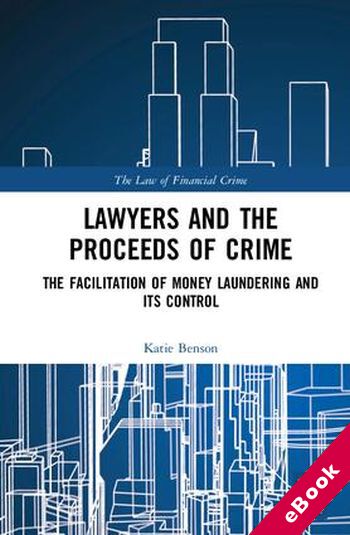
The device(s) you use to access the eBook content must be authorized with an Adobe ID before you download the product otherwise it will fail to register correctly.
For further information see https://www.wildy.com/ebook-formats
Once the order is confirmed an automated e-mail will be sent to you to allow you to download the eBook.
All eBooks are supplied firm sale and cannot be returned. If you believe there is a fault with your eBook then contact us on ebooks@wildy.com and we will help in resolving the issue. This does not affect your statutory rights.
The role played by legal professionals in the laundering of criminal proceeds generated by others has become a priority concern for authorities at national and international levels. This ground-breaking book presents an in-depth empirical analysis of the nature of lawyers’ involvement in the facilitation of money laundering and its control through criminal justice and regulatory mechanisms. It is based on qualitative research combining analysis of cases of lawyers convicted of money laundering offences with interviews with criminal justice practitioners, members of professional and regulatory bodies and practising solicitors, and analysis of relevant national and international legislative and regulatory frameworks.
The book demonstrates the complex and diverse nature of lawyers’ involvement in laundering activity, and shows that their actions and the decisions they take must be understood in relation to the specific situational contexts in which they occur. It provides significant new insights into the criminal justice and regulatory response to professional facilitation of money laundering in the UK, raising questions about the effectiveness and appropriateness of the response and the challenges involved. The book develops a framework for future research and analysis in this area, and proposes a range of potential strategies for controlling the facilitation of money laundering.
Lawyers and the Proceeds of Crime is essential reading for those researching money laundering, white-collar crime or organised crime, and for practitioners and policy makers concerned with preventing the facilitation of money laundering.